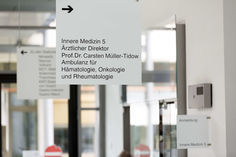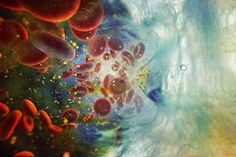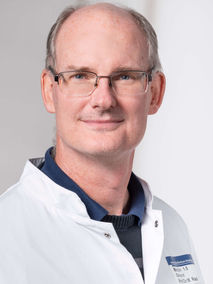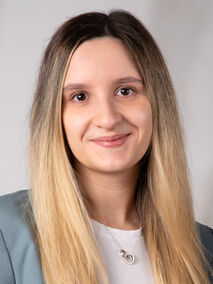- Biobank / GMMG Probeneingangslabor
- Myelomregister
- Myelom Studienzentrale / GMMG Studien
- Translationale Myelomforschung
- Funktionelle Bildgebung
- Molekularbiologisches Labor / Studien zur Erblichkeit des Multiplen Myeloms
- Innovative Therapien beim Multiplen Myelom: Phase I, PerMyt, HIPO
- Laboratory for Translational Immunology (TRIM)
- GMMG Assessment Center der Minimalen Resterkrankung (MRD)
Translationale Myelomforschung
Das Multiple Myelom ist eine Erkrankung mit einem komplexen und heterogenen Krankheitsverlauf mit einer entsprechend komplexen zugrundeliegenden Biologie. Ziel ist es, die komplexen Vorgänge zu verstehen, die für die Entstehung, Progression und Resistenzmechanismen des Multiplen Myelom verantwortlich sind, um aus diesen Erkenntnissen neue Möglichkeiten der Tumorbehandlung, neue therapeutische Zielstrukturen, abzuleiten.
Um die Heterogenität des Multiplen Myeloms während des Krankheitsverlaufes besser zu verstehen, analysieren Arbeitsgruppen am Heidelberger Myelomzentrum die einzelnen molekularen Ebenen des Heidelberg Translational Myeloma Research Program zusammen mit herausragenden Partnern unterschiedlicher Disziplinen (Medizin, Molekularbiologie, Humangenetik, Immunologie, Informatik, Bioinformatik, Statistik, Pathologie) auf dem Campus.
Mit der interdisziplinären Gruppe des Chromatine Network (link: malone.bioquant.uni-heidelberg.de) können wir neben WGS und RNAseq auch auf Einzelzellebene mittels scRNA-, scATACseq Aussagen über das Genom/Transkriptom/Epigenom treffen.
In Kooperation mit den bioinformatischen Gruppen des DKFZ Computational Genomics & System Genetics ( www.dkfz.de/en/bioinformatik-genomik-systemgenetik/) , Applied Bioinformatics ( www.dkfz.de/en/applied-bioinformatics/index.php )werden die komplexen Ergebnisse ausgewertet und interpretiert. Methoden von Informatik, Bioinformatik und Statistik werden kombiniert, um beispielsweise Netzwerke genetischer Regulation zu beschreiben und zu analysieren. Mechanismen, über die genetische Faktoren und Umwelteinflüsse auf molekulare Phänotypen in einzelnen Zellen wirken, werden außerdem untersucht.
Zusätzlich können wir in Aspiraten und Biopsien des Knochenmarks in Zusammenarbeit mit dem Molecular Pathology Center (MPZ) somatische genetische Veränderungen (Mutationen, Translokationen, Genfusionen, Kopienzahlveränderungen) auch im Gewebe identifizieren.
Chromosomale Anomalien scheinen für die Tumorentstehung und Tumorprogression von großer Bedeutung zu sein. Die Identifikation und Charakterisierung der Mechanismen, die zu chromosomaler Instabilität von entarteten Plasmazellen führt, erforschen wir zusammen mit der Gruppe Molekulare Hämatologie/Onkologie (https://www.dkfz.de/de/mol-haem_onk/index.php).
Research interests are basic and applied science regarding a) molecular pathogenesis of multiple myeloma b) identification of target structures and development of novel therapeutic approaches, and c) translation of results into clinical applications.
Projekte
- Accompanying research in clinical studies HD7-scSeq (evolution of disease biology), HD8, HD9 and HD10 (immunphenotyping)
- Preclinical study trispecific Ab in rrMM
- HOPP-SP3 (molecular characterization of multiple myeloma)
- Spatial Tracing of cancer subclone-specific ME interactions by highly multiplexed protein and nucleic acid imaging (resistance mechanisms)
- Comprehensive characterization of multiple myeloma patients by integrating transcriptomic, genomic, and signalling pathway profiling with spatial microenvironment composition
- PerMyT - Personalizing Refractory Myeloma Therapy (mol. landscape of rrMM, mol. evolution of high-risk MM, scSeq of rrMM)
- iMMunocell (development of minimal-invasive methods for early detection of SMM)
Aufgewählte Publikationen
Lukas John, Alexandra M. Poos, Alexander Brobeil, Carolina Schinke, Stefanie Huhn, Nina Prokoph, Raphael Lutz, Barbara Wagner, Maurizio Zangari, Stephan M. Tirier, Jan-Philipp Mallm, Sabrina Schumacher , Dominik Vonficht , Llorenç Solé-Boldo, Sabine Quick, Simon Steiger, Moritz J. Przybilla, Katharina Bauer, Anja Baumann, Stefan Hemmer, Christoph Rehnitz, Christian Lückerath,Christos Sachpekidis, Gunhild Mechtersheimer, Uwe Haberkorn, Antonia Dimitrakopoulou-Strauss, Philipp Reichert, Bart Barlogie, Carsten Müller-Tidow, Hartmut Goldschmidt, Jens Hillengass, Leo Rasche, Simon F. Haas, Frits van Rhee, Karsten Rippe, Marc S. Raab, Sandra Sauer & Niels Weinhold. Resolving the spatial architecture of myeloma and its microenvironment at the single-cell level. Nat Commun. 2023 Aug 17;14(1):5011. doi: 10.1038/s41467-023-40584-4. PMID: 37591845
Poos AM, Prokoph N, Przybilla MJ, Mallm JP, Steiger S, Seufert I, John L, Tirier SM, Bauer K, Baumann A, Rohleder J, Munawar U, Rasche L, Kortüm KM, Giesen N, Reichert P, Huhn S, Müller-Tidow C, Goldschmidt H, Stegle O, Raab MS, Rippe K, Weinhold N. Resolving therapy resistance mechanisms in multiple myeloma by multi-omics subclone analysis. Blood. 2023 Jun 30:blood.2023019758. doi: 10.1182/blood.2023019758. Epub ahead of print. PMID: 37390336.
Carolina Schinke and Niels Weinhold. The Immune Microenvironment in Multiple Myeloma Progression at a Single-cell Level Hemasphere. 2023 Jun; 7(6): e894. Published online 2023 May 25. doi: 10.1097/HS9.0000000000000894 PMID: 37251913
Raab MS, Cohen YC, Schjesvold F, Aardalen K, Oka A, Spencer A, Wermke M, Souza AD, Kaufman JL, Cafro AM, Ocio EM, Doki N, Henson K, Trabucco G, Carrion A, Bender FC , Juif PE, Fessehatsion A, Fan L, Stonehouse JP, Blankenship JW, Granda B, De Vita S, Lu H. Preclinical discovery and initial clinical data of WVT078, a BCMA × CD3 bispecific antibody. Leukemia. 2023 Jun;37(6):1349-1360.
Giesen N, Chatterjee M, Scheid C, Poos AM, Besemer B, Miah K, Benner A, Becker N, Moehler T, Metzler I, Khandanpour C, Seidel-Glaetzer A, Trautmann-Grill K, Kortüm KM, Müller-Tidow C, Mechtersheimer G, Goeppert B, Stenzinger A, Weinhold N, Goldschmidt H, Weisel KC, Raab MS. A phase II clinical trial of combined BRAF/MEK inhibition for BRAFV600E-mutated multiple myeloma. Blood. 2023 Apr 6;141(14):1685-1690.
Friedrich MJ, Neri P, Kehl N, Michel J, Steiger S, Kilian M, Leblay N, Maity R, Sankowski R, Lee H, Barakat E, Ahn S, Weinhold N, Rippe K, Bunse L, Platten M, Goldschmidt H, Müller-Tidow C, Raab MS, Bahlis NJ. The pre-existing T cell landscape determines the response to bispecific T cell engagers in multiple myeloma patients. Cancer Cell. 2023 Apr 10;41(4):711-725.
Mai EK, Huhn S, Miah K, Poos AM, Scheid C, Weisel KC, Bertsch U, Munder M, Berlanga O, Hose D, Seckinger A, Jauch A, Blau IW, Hänel M, Salwender HJ, Benner A, Raab MS, Goldschmidt H, Weinhold N. Implications and prognostic impact of mass spectrometry in patients with newly-diagnosed multiple myeloma. Blood Cancer J. 2023 Jan 4;13(1):1. doi: 10.1038/s41408-022-00772-9.PMID: 36599831
Tirier SM, Mallm JP, Steiger S, Poos AM, Awwad MHS, Giesen N, Casiraghi N, Susak H, Bauer K, Baumann A, John L, Seckinger A, Hose D, Müller-Tidow C, Goldschmidt H, Stegle O, Hundemer M, Weinhold N, Raab MS, Rippe K. Subclone-specific microenvironmental impact and drug response in refractory multiple myeloma revealed by single-cell transcriptomics. Nature Communications12(1):6960, 2021.
Weinhold N, Salwender HJ, Cairns DA, Raab MS, Waldron G, Blau IW, Bertsch U, Hielscher T, Morgan GJ, Jauch A, Davies FE, Hänel M, Cook G, Scheid C, Houlston R, Goldschmidt H, Jackson G, Kaiser MF. Chromosome 1q21 abnormalities refine outcome prediction in patients with multiple myeloma - a meta-analysis of 2,596 trial patients. Haematologica 106(10):2754-2758, 2021.
Dimopoulos MA, Dytfeld D, Grosicki S, Moreau P, Takezako N, Hori M, Leleu X, LeBlanc R, Suzuki K, Raab MS, Richardson PG, Popa McKiver M, Jou YM, Shelat SG, Robbins M, Rafferty B, San-Miguel J. Elotuzumab plus Pomalidomide and Dexamethasone for Multiple Myeloma. The New England Journal of Medicine 379(19):1811-1822, 2018
Kooperationspartner
- single cell open lab -Jan-Philipp Mallm (DKFZ)
- Karsten Rippe (DKFZ)
- Alwin Krämer (DKFZ)
- Felix Hartmann (DKFZ)
- Michael Platten (DKFZ)
- Stefan Delorme (Radiologie DKFZ)
- Stefan Fröhling (NCT)
- Alexander Brobeil ( UKHD Pathologie)
- Carsten Müller-Tidow (UKHD)
- Stefan Hemmer (UKHD Orthopädie)
- Huber Group (EMBL, Quantitative Biology and Statistics)
- Simon Haas and Jan Krönke, Charite
- Leo Rasche and Martin Kortüm, UK Würzburg
- Sascha Dietrich, Düsseldorf
- Bruno Paiva, Navarra Spain
- Francesco Maura and Ola Landgren, Miami
- Gareth Morgan, New York
- Martin Kaiser, London
- Carolina Schinke, Little Rock
- Mirco Friedrich, Boston
- Nizar Bahlis, Calgary
- Jayavelu, Ashok Kumar (Kitz)
- Biobank / GMMG Probeneingangslabor
- Myelomregister
- Myelom Studienzentrale / GMMG Studien
- Translationale Myelomforschung
- Funktionelle Bildgebung
- Molekularbiologisches Labor / Studien zur Erblichkeit des Multiplen Myeloms
- Innovative Therapien beim Multiplen Myelom: Phase I, PerMyt, HIPO
- Laboratory for Translational Immunology (TRIM)
- GMMG Assessment Center der Minimalen Resterkrankung (MRD)
Leitung
Prof. Dr. med. Marc-Steffen Raab
Leitung
(Translationale Myelom-Forschung / Med. Systembiologie)
Schwerpunkt
Hämatologie und Onkologie, Multiples Myelom
Sekretariat Sektion Multiples Myelom
Leitung

Dr. rer. nat. Niels Weinhold
Leitung
(Translationale Myelom-Forschung / Med. Systembiologie)
Schwerpunkt
Medizinische Systembiologie
Anschrift
Medizinische Klinik, Abt. Innere Medizin V
Im Neuenheimer Feld 410
69120 Heidelberg
bzw.
Max-Eder Gruppe (G170)
Experimentelle Therapien hämatologische Neoplasien
Deutsches Krebsforschungszentrum
Im Neuenheimer Feld 581
69120 Heidelberg









